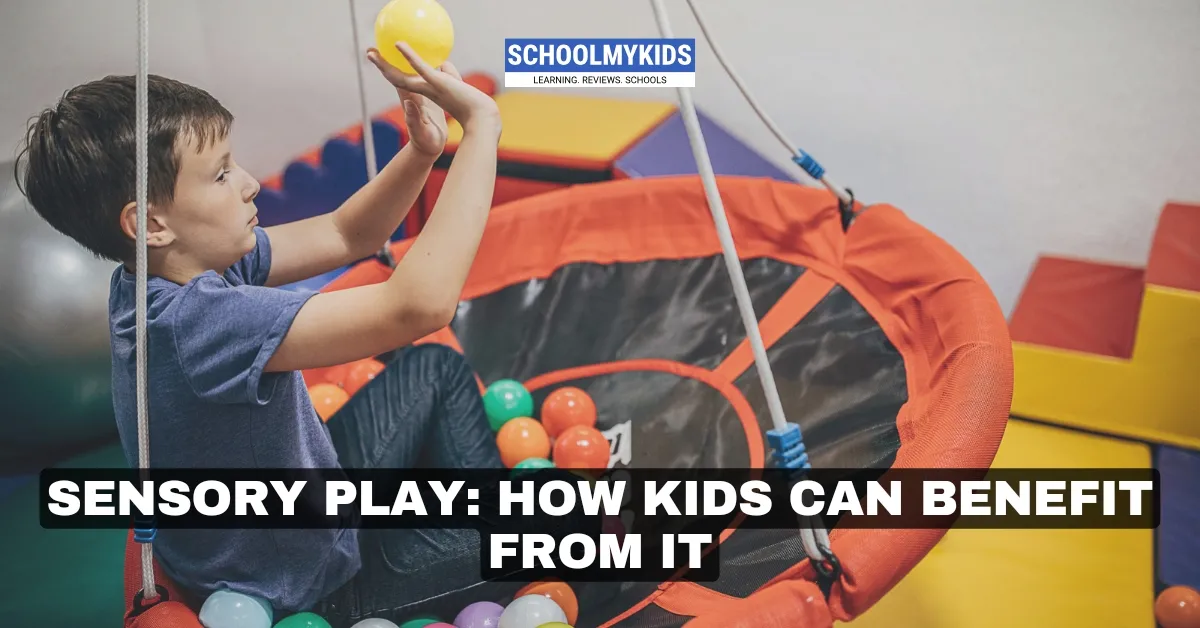In this digital age, it often gets difficult for parents to peel kids away from screens and back to the traditional play. But, did you know there’s one type of play that has always been around and has several benefits associated with it? It’s not just entertaining but powerful enough to engage a child's senses, such as touch, smell, taste, sight, sound, and movements. From just a box of sand to colorful clay, the benefits of sensory play are beyond fun.
Read below this article to explore sensory play and its benefits for kids.
What Is Sensory Play?
Sensory play comprises activities that typically stimulate a kid’s senses and could be as simple as putting the fingers into the bin of rice, playing with slime, or squishing play dough. The approach is to let kids interact with different smells, colors, textures, and sounds to encourage curiosity and learning.
So why does it matter? According to experts, kids between 0 and 7 years old are at a stage where their brain connections are built at a surprising rate, and engaging in sensory play can actually aid in faster and stronger learning.
Benefits of Sensory Play for Kids
The key benefits of sensory play for kids have been given below.
Improved Language Skills
Kids actually love describing their experiences, and sensory play gives them endless experiences for them to translate into their own words. While exploring different smells and textures, they actually learn to describe things as rough, smooth, sticky, sweet, soft, or bumpy. This description is the ultimate basics of storytelling. The best part is that even a study showed that kids who engage in sensory play have stronger vocabularies compared to the other kids.
Better Understanding Of How Things Work
Do you know when a child feels sand for the first time? For example, they realize it can be hard and soft both at the same time. Similarly, it can also be dry and wet or maybe warm or cool. And when they pour the same sand from one container to another, they are actually engaging in concepts of volume and measurements. This is where sensory play actually helps in making connections and understanding the real-world concepts in a better way.
Sharper Motor Skills
Sensory activities, such as scooping, pinching, squeezing, and pouring, are helpful in developing the essential motor skills that form the basics of writing, drawing, and more. In fact, according to a study, sensory-rich activities directly benefit fine motor control in toddlers and younger kids and prepare them for even more complicated tasks.
Soothing For the Young Minds
It's not uncommon for kids to feel chaotic at times. However, sensory play, on the other hand, provides a grounding effect and helps kids calm down. Besides, it also serves as an outlet for excess energy in kids. The best part is that sensory activities also support emotional self-regulation, which means fewer meltdowns and more peaceful moments to enjoy.
Boost Creativity
Last but not least, sensory play is open-ended, which indicates there’s no right or wrong way to do it. This ultimately encourages kids to explore their creativity and come up with their own, refreshing ideas. So the next time you notice your little one deciding to cook with the rice, scooping it, measuring it, and pretending they’re making soup, they’re probably doing something much more.
Takeaway
From playing with a squishy dough or pouring rice from one box to the other, sensory activities are simple yet effective in boosting creativity, developing motor and language skills, and keeping the little minds calm. After all, play is not just about keeping them busy but also about helping them learn some new skills. At the end, sensory play is not merely fun but also a happy childhood and skill-building time.








Be the first one to comment on this story.